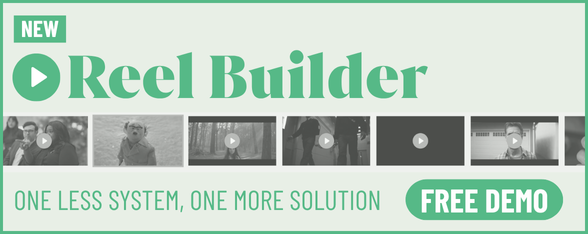
Executions That Are Too Invasive Are Creepy

Mobile technology has come a long way since breezeblock car phones of the ‘80s or the days of playing Snake on the Nokia 3310. And these days it’s evolving so fast that, for judges of the Mobile Lion at Cannes, each year throws up a new array of possibilities. But while the platforms and devices might change, what doesn’t change is that the best work is focused less on tech and more on behaviour, according to jury president Jay Morgan.
LBB’s Laura Swinton caught up with Jay to pick his brains abut the category and find out how the privacy debate is going to factor into this year’s jury discussions.
LBB> This year at Cannes, what will you be looking out for among the entries?
JM> There’s a lot of work out there but there’s only a handful of truly inspired work that’s well executed. We need the power of creativity now more than ever before and the work that displays this will win.
LBB> What words of guidance will you be sharing with the jury to get them in the right headspace?
JM> Relax and enjoy the process. When do you get the chance to spend uninterrupted time getting inspired by the best work from around the world?
LBB> Mobile is one of those relatively newish categories that’s evolving rapidly, thanks to the proliferation of new types of mobile devices and their increasing sophistication. What challenges does that present the jury?
JM> Mobile isn’t just about the mobile phone itself. It’s about personal behaviour and our experiences in a social world. The mobile category is both a northern star that we can point to for the best work that enables these new experiences but it’s also the canary - we see trends appear before they are even a trend so it’s a challenge to place some of the work sometimes.
LBB> Data and privacy have become real mainstream issues in 2018, with the fallout from Cambridge Analytica and in Europe things like GDPR. They’re being discussed far beyond the usual advertising and tech circles. How far do you think those sorts of issues will factor into discussions and debates?
JM> I’ve always found executions that were too invasive to be creepy. Ads that follow you around and know too much about you have been in existence for a decade. But these recent public examples are a circuit-breaker for everyone, particularly for ad-tech. Everyone can agree that personalised and more relevant ads are the way forward so I think forcing brands to ask consumers who they give their data to will help create a more transparent and healthy digital experience for everyone.
LBB> In your president’s message, you spoke about your memories of when Steve Jobs revealed the very first iPhone. It feels like these days tech advances are happening faster but more incrementally… do you think we’re ever going to have a similar moment again in our lifetime?
JM> Every couple of decades a technology appears that is so ground-breaking, so revolutionary that we create this alternate reality around it - and the myth develops that no one could see this thing coming because it’s a brand new invention. The reality is, the mobile phone already existed. Touch screens already existed. Email, web browsing, even video calling, all already existed. But it was the integration of all of these disparate technologies in to one cohesive and irresistible package that was Jobs’ genius.
That same change can happen now. Think about all of the fringe technologies that exist right now; VR, AR, wearables, image recognition, AI and machine learning, robotics and voice. All of these technologies are ripe for integration.
LBB> What’s your favourite example of mobile work ever?
JM> That’s an impossible ask; there isn’t one piece. I think ideas like Math Paper Press ‘Book Never Go Offline’ was stunningly simple - by programming the HTML of a website, it customised the ‘offline’ message when your mobile browser loses connection to display a chapter of a book with the message ‘books never go offline’ thus creating a brand new kind of media. I’m very jealous of that idea; it’s the convergence of technical know-how and pure lateral thinking.
LBB> What has the prejudging process been like?
JM> It’s kind if you start early and pace yourself but it can be brutal if you leave it to the last week before judging. There’s some incredible work in there and I can’t wait to get into the jury room.
LBB> You’ll be spending a lot of time in the jury room but what are you looking forward to outside of the judging?
JM> This is a big year for Accenture Interactive, our new parent company, and brands are really interested in what we can do for them now. For years I’ve worked on the brand marketing side only, so to now be able to work with a client from the end-to-end of their business is really exciting. I’ll be spending some time with our Accenture Interactive team and our clients.















